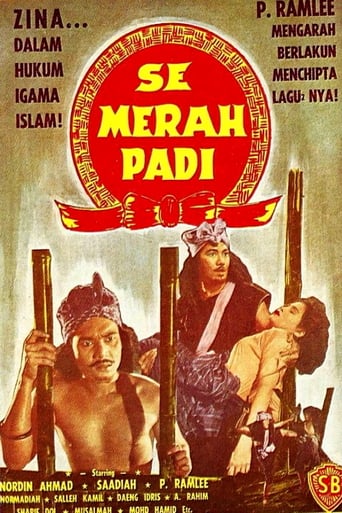

...in other words, one of the truly avant-garde Malay films!I love this film - it is noir-ish and has a positively European feel to it. Shot almost entirely on an indoor set, the atmospherics are dark and claustrophobic, effectively conveying the sombre tale of Aduka, Taruna and Dara.**SPOILERS AHEAD**Aduka and Taruna, played by P. Ramlee and Nordin Ahmad respectively, are two warriors who are the best of friends in the village of Semerah Padi. Dara (played by Saadiah), the daughter of the village chief, and Aduka are secretly in love. Unbeknownst to the lovers, Taruna also has feelings for Dara and asks the village head for his daughter's hand in marriage!! As daddy approves, the two are soon engaged.Aduka and Dara are devastated. While taking shelter from a raging storm one day, their passions overcome them and they make love. Aduka is unable to bear the guilt of betraying Taruna and his religion. He confesses the tryst, and both he and Dara are each punished with 100 strokes of the cane for committing pre-marital sex.But the cloud shadowing Aduka and Dara has a silver lining. Being the bigger man, Taruna cancels his engagement to Dara to allow Aduka to step in. "If you loved her so much, you only had to say the word! I would have gladly stepped aside for you, my brother!"The underlying moral of the film is faithfulness to Islam. As it was shot in the 1950s, however, we are spared from any extremist preachings. In fact, the only aspect of Islam highlighted in the film is sexual offences and their punishment. Early in the film, a village woman and her lover are caught in the act of adultery and are executed by "sula" i.e. the insertion of a spear through the anus to the heart (Note: I know that Islam prescribes stoning for some offences, but I'm not sure that "sula" is in the books).All in all, a film that had me riveted from beginning to end.
... View More